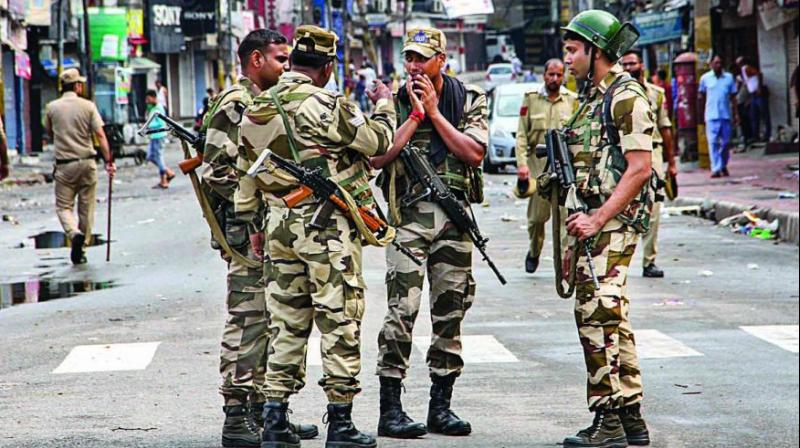Illusion of credibility to Pak J&K claim dented

The perennial feature of Pakistan’s dealings with India has been the range of instrumentalities it has sought to deploy to question Kashmir’s accession to India, to lay dubious claim to the Valley, and to project Kashmir as “disputed” territory worthy of international intervention.
Since Islamabad was the all-too-willing pawn of the western powers in the past, the latter too were happy to bolster its Kashmir narrative and play an interventionist role on its behalf at the UN forum, in the bargain prejudicing India's interest, which was mercifully protected in the UN Security Council thanks to the Soviet veto in that era.
Much has changed since. The US and other leading powers have sought to advance their own interests by forging friendship with India. To that extent, they have modulated their tone and now tend to be more even-handed than before on the Kashmir question.
They have begun to lay an unwonted emphasis on the Simla Agreement of July 1972 where it was formalised for the first time that any questions that may arise in India-Pakistan relations must be resolved “bilaterally” by New Delhi and Islamabad. The message was reinforced through the Lahore Declaration of February 1999. Kashmir was not referred to as a “dispute” in these documents.
This has stood India in good stead at a moment when Pakistan has gone ballistic, diplomatically, in the wake of the Centre’s unfortunate move of August 5, 2019 to fundamentally alter the constitutional status of J&K, bifurcating it into two Union territories.
The UN, US and even Pakistan’s “all-weather friend” China have found it difficult to accept Islamabad’s urgings to openly intervene on its behalf on the Kashmir issue.
Each of these has urged that Islamabad and New Delhi settle all problems “bilaterally”, although Beijing has paid disproportionate emphasis on UN resolutions in resolving differences on Kashmir and has gratuitously said that it would stand by Pakistan in any difficulty. Because the US currently needs Pakistan’s help in its interlocution with the Taliban in Afghanistan, it may be tempted to give Islamabad some satisfaction on the Kashmir issue. India needs to take this on board and take preventive steps.
Deplorable as the Centre’s action is in annulling J&K’s special status, it needs to be underlined that Pakistan has no locus standi when it comes to Kashmir. The matter was settled when, unable to withstand an invasion by tribesmen from Pakistan with the active encouragement and support of the Pakistan Army, Maharaja Hari Singh of J&K, Kashmir's last ruler, acceded his domains to India within a specified legal and constitutional framework that was subsequently endorsed by Article 3 of the J&K Constitution which categorically stated that J&K state was an “integral” part of India.
The state's constitution created by J&K's elected Constituent Assembly represented the will of the people. Thus, the ruler and the people had both endorsed Kashmir becoming a part of India.

